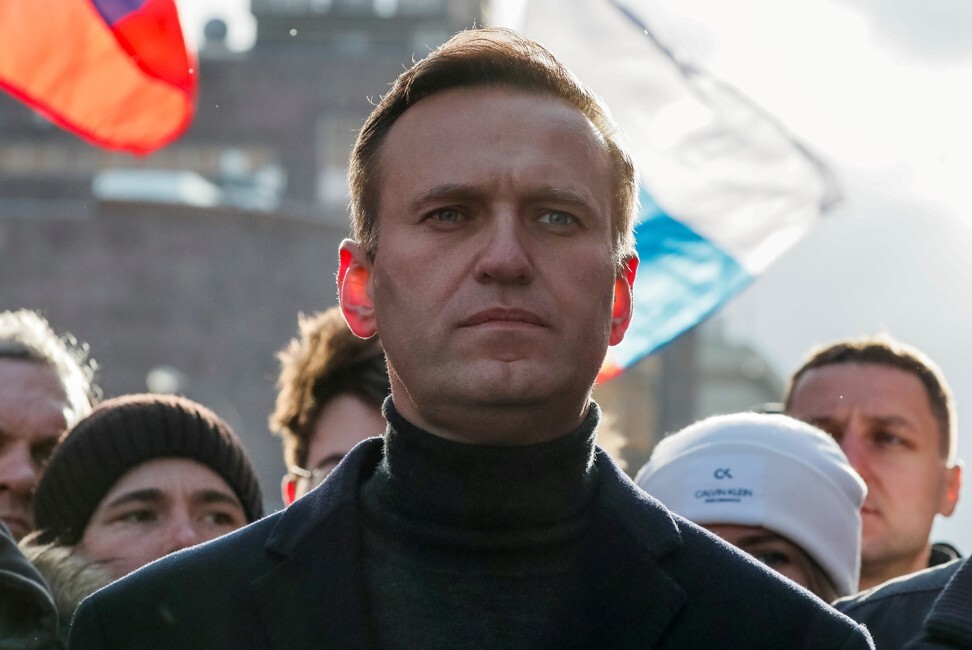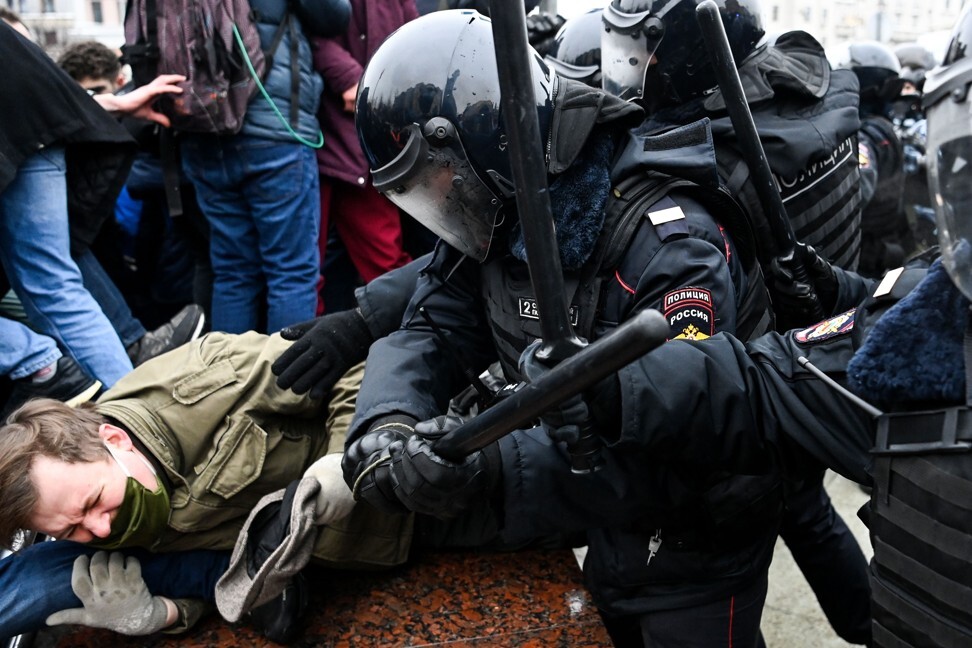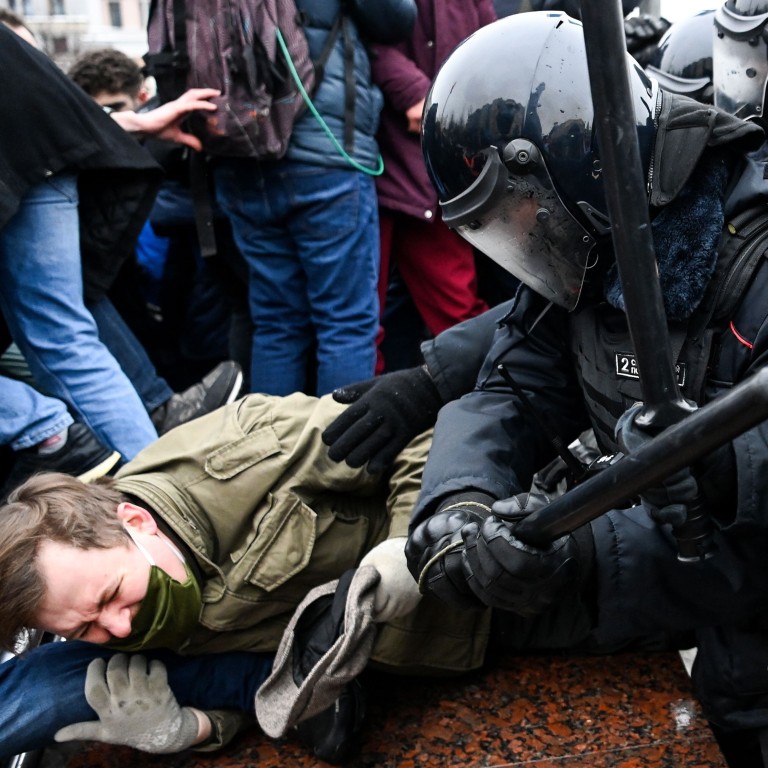
US slam Russia’s arrests of over 3,300 Alexei Navalny supporters, EU to discuss ‘next steps’
- Tens of thousands nationwide answered Navalny’s call to rally, issued after he was arrested on arrival from Germany
- The EU’s foreign policy chief Josep Borrell condemned the ‘widespread arrests’ and ‘disproportionate use of force’
The authorities had warned people to stay away from Saturday’s demonstrations, saying they risked catching Covid-19 as well as prosecution and possible jail time for attending an unauthorised event.
But protesters defied the ban and, in at least one case in temperatures below minus 50 degrees Celsius, turned out in force.
Washington and Brussels condemned the arrests and other tactics used against demonstrators, with EU foreign policy chief Josep Borrell saying the bloc would discuss “next steps” on Monday.
Saturday’s protests took on an unprecedented geographic scale, spanning more than 100 cities across the country. Previous large-scale opposition demonstrations in 2012 and 2019 were largely centralised in Moscow.
They were also being seen as a test of the opposition’s ability to mobilise ahead of parliamentary elections later this year, despite increasing Kremlin pressure on critics.
In Moscow, protesters spilled out over Pushkin Square and pelted heavily armed riot police with snowballs. They were beaten back by law enforcement wielding batons and detained in large numbers.
Navalny says Russian agent put poison in his underwear in murder plot
The demonstrators marched towards the Kremlin before dispersing, and at one point massed on the steps of Moscow’s circus, illuminating the crowds with hundreds of cell phone lights and pummelling a police van with snowballs.
“Criminals dressed in uniforms are protecting criminals at the helm,” said Vera Spivakova, a 71-year-old pensioner in Moscow. “Putin and the oligarchs are afraid of losing their trough.”
OVD Info, which monitors opposition rallies, said that more than 2,500 protesters had been seized by police in dozens of cities.
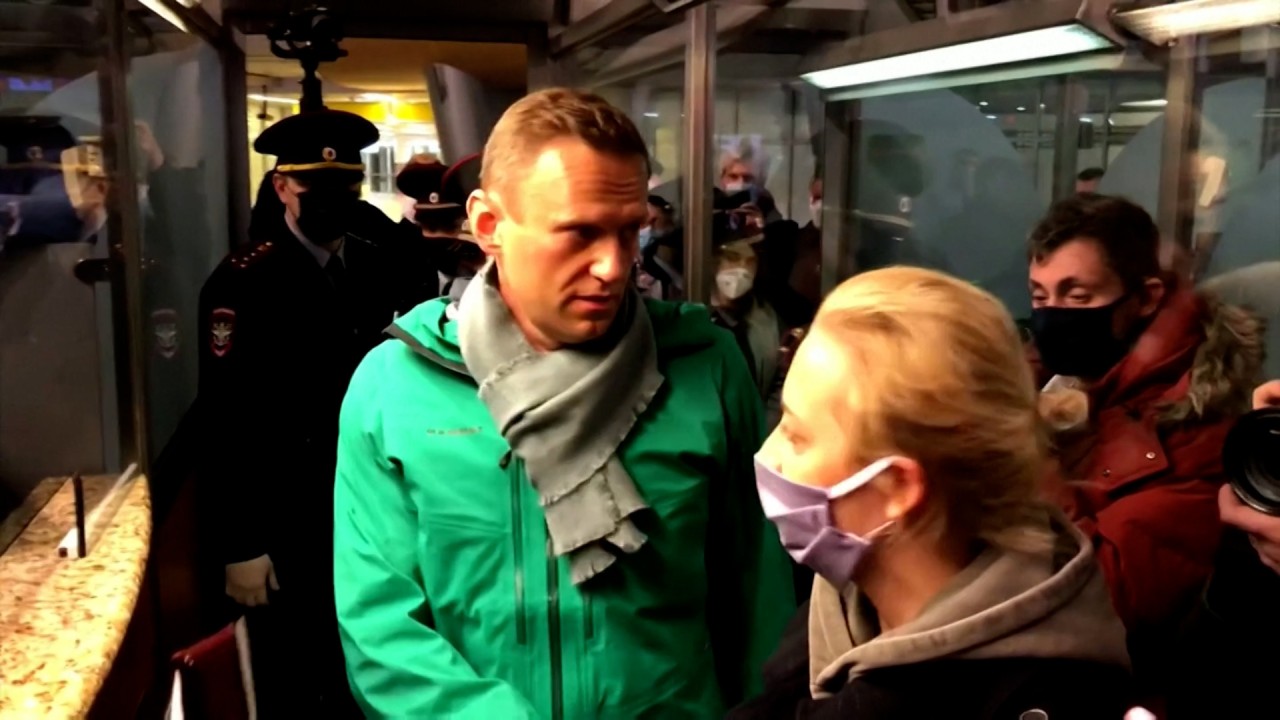
02:05
Kremlin critic Alexei Navalny arrested and detained upon return to Russia after near-fatal poisoning
Among more than 950 detained in the capital were Navalny’s wife Yulia Navalnaya -- who was later released -- and prominent activist Lyubov Sobol. Several Navalny associates were also fined and jailed on the eve of the protest.
The United States condemned what it described as “harsh tactics” used against protesters and journalists and called for Navalny’s “immediate and unconditional” release.
“We call on Russian authorities to release all those detained for exercising their universal rights,” US State Department spokesman Ned Price said in a statement.
The European Union’s Borrell said he deplored “widespread arrests” and the “disproportionate use of force”.
Canada also voiced “deep concern” and urged Moscow to “immediately release” those detained.
Alexei Navalny’s wife among thousands arrested in anti-Putin protests across Russia
On placards and in chants, protesters referenced an investigation published this week by Navalny into an opulent Black Sea property allegedly owned by Putin. The two-hour report has been viewed more than 75 million times on YouTube.
Later Saturday hundreds gathered outside Moscow’s high-security prison where Navalny is being held but were pushed back by police.
Leonid Volkov, who heads Navalny’s regional network, estimated that as many as 300,000 people had joined the “unprecedented” nationwide protests, and called for fresh rallies next weekend.
The Investigative Committee, which probes major crimes, said in a statement it had launched several preliminary probes into violence against law enforcement.
AFP journalists, who saw badly injured protesters retreating behind other demonstrators after clashing with police, estimated crowds in Moscow at around 20,000 people, with more than 10,000 in second city Saint Petersburg.
Navalny’s detention drew sharp condemnation from Western countries, and the US embassy in Moscow Saturday accused Russian authorities of “suppressing” the right of demonstrators to peaceful protest.
Moscow hit back by alleging US diplomats had published protest routes in advance of Saturday’s demonstrations and of promoting a “march on the Kremlin”.
“Senior officials in the US embassy will have to have a serious conversation with the Russian foreign ministry,” it said in a statement.
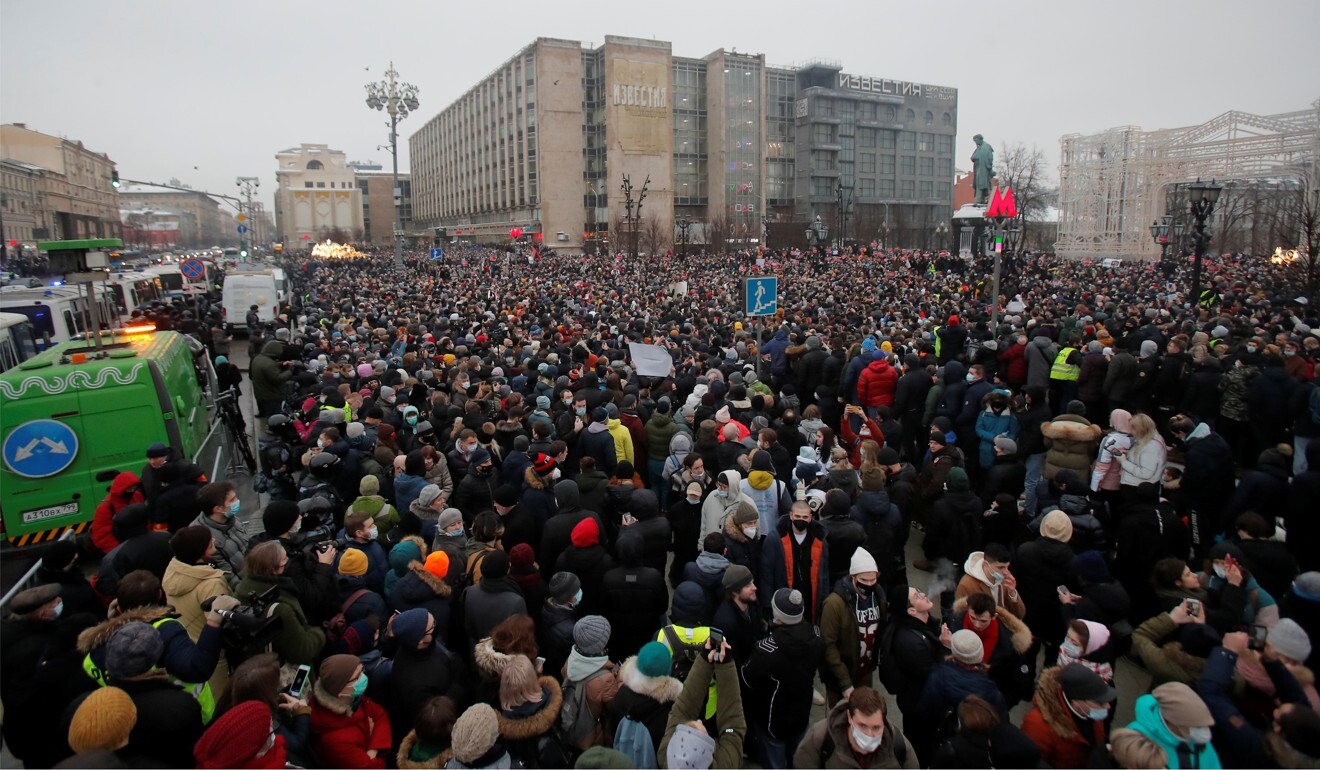
Earlier on Saturday, thousands took to the streets in the Far East, Siberia and the Urals including Khabarovsk, Novosibirsk and Yekaterinburg, despite sub zero temperatures and police warnings of a swift crackdown.
In Saint Petersburg, where police detained nearly 300 demonstrators, 20-year-old Alexei Skvortsov said that he no longer wanted to live in a “dictatorship”.
“People are tired of Putin,” he said.
In Yakutsk south of the Arctic Circle, protesters wrapped up against the cold and rallied in temperatures of minus 50 degrees Celsius.
Russia’s media watchdog warned online platforms against encouraging minors to participate in the rallies or risk hefty fines.
A hastily organised court on Monday jailed Navalny for 30 days for allegedly flouting parole conditions.

The 44-year-old trained lawyer rose to prominence a decade ago, leading large-scale street protests against corruption and electoral fraud.
While seen as a darling of the West, Navalny has long aligned himself with Russian nationalists.
His nationalist streak, which at times has included anti-immigrant views and an insistence that he would never leave his homeland, has made it difficult for the Kremlin to portray him as a puppet of the West — despite having attended university in the US.
In 2006, he appealed to Moscow City Council that the Russian March — a far-right gathering — be allowed to take place. In 2007, he founded a political movement called The People, which allied itself with two nationalist groups, the Movement Against Illegal Immigration and Great Russia.
He also expressed support for Russia during the Russo-Georgian war of 2008 and used a derogatory term for Georgians in blog posts calling for them to be expelled from Russia.
Additional reporting by POLITICO, Reuters

.png?itok=arIb17P0)
